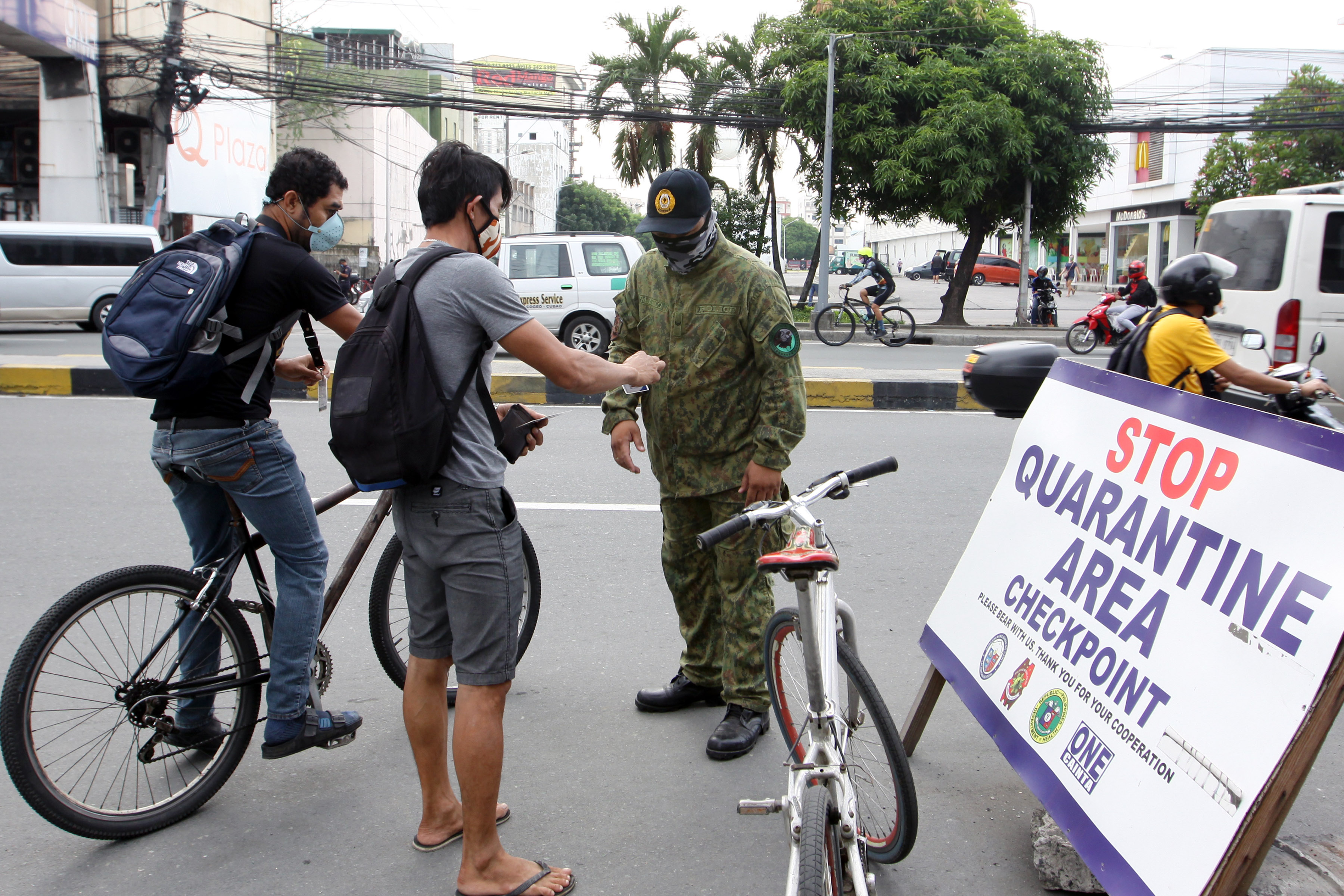
MANILA – It would be “highly unlikely” for President Rodrigo Duterte to retain the stricter modified enhanced community quarantine (MECQ) status in Metro Manila and its nearby provinces, Malacañang said on Tuesday.
“Ang tanong eh kung possible: Ang sagot ko (The question is if it’s possible: My answer is) anything is possible but highly unlikely,” Presidential Spokesperson Harry Roque said in a virtual presser, when quizzed if MECQ extension is possible in Metro Manila and its nearby provinces.
Metro Manila and the provinces of Bulacan, Cavite, Laguna and Rizal were initially under a more relaxed general community quarantine (GCQ) until August 15.
The quarantine classification in the country’s metropolis and the four provinces was, however, upgraded to MECQ from GCQ until August 18 following the health workers’ appeal for a “timeout” to prevent the collapse of the country’s healthcare system amid the coronavirus disease 2019 (Covid-19) pandemic.
In a televised public address aired on Monday night, Duterte said he wanted to heed the request of medical front-liners to extend MECQ in Metro Manila and nearby provinces until end of August to curb the spread of Covid-19.
Duterte, however, admitted that the depleting funds of the government is a hindrance to the possible retention of MECQ status.
Roque said the “best” solution to fight Covid-19 is to impose enhanced community quarantine (ECQ) or MECQ, but stressed that the government could no longer afford to provide emergency relief to people who will be most affected by the imposition of stricter quarantine measures.
“Ang bottomline po, naubos na po ang ating resources for ayuda (The bottomline is we no longer have resources to give assistance),” he said.
Asked if the proposed Bayanihan to Recover as One Act (Bayanihan 2) will give additional funding to boost the government’s Covid-19 response, Roque said it still depends on the provisions included in the measure.
Roque was also unsure whether Bayanihan 2 would contain a provision which allows the government to continue the distribution of cash aid to low-income households.
“Alam ko po iyan (Bayanihan 2) ay para naman makabangon tayo (I know it’s for our recovery),” he said. “Tignan po natin kung ano ang batas na ipapasa po ng ating Kongreso (Let’s see what measure will be passed by Congress).”
The proposed Bayanihan 2, one of the legislative priorities cited by Duterte in his fifth state of the nation address, proposes a PHP162-billion standby fund to support response measures to address Covid-19 pandemic.
The House of Representatives on Monday approved on third and final reading the proposed Bayanihan 2.
MECQ extension up to IATF
Also on Monday, Defense Secretary Delfin Lorenzana believed that Metro Manila is ready for GCQ after August 18.
Roque, however, said the decision would still be up to the Inter-Agency Task Force for the Management of Emerging Infectious Diseases (IATF-EID).
“Sa (For) actual decision, I cannot preempt the IATF so let us wait for the IATF decision,” he said.
The IATF-EID is the body tasked to make recommendations on the classifications of community quarantine that will be implemented in the country. The final decision comes from Duterte.
‘Trying hard’ to fight Covid-19
On Monday, the Philippines reported 6,958 new Covid-19 infections, the highest single-day surge for the country.
The country now has 136,638 confirmed Covid-19 cases, with 68,159 recoveries and 2,294 deaths.
Vice President Maria Leonor Robredo attributed the rise in Covid-19 cases to the community transmission.
Roque agreed with Robredo that community transmission is also a challenge for the government.
“Iyan naman po ay kinikilala natin. Talaga naman pong patuloy pa rin ang community transmission (We acknowledge that. It’s true that community transmission continues),” he said.
Roque, nevertheless, assured the public that the government is doing its very best to combat Covid-19.
He said the government is being “aggressive” in conducting tests in villages under localized lockdown, isolating people infected with the new coronavirus, tracing people exposed to infected individuals, and increasing the number of Covid-19 beds.
He also emphasized that the government is working overtime to contain the spread of the disease.
“We may not be as successful, but I can assure you everyone is working, trying hard to find a solution to the problem. Kung magkulang man, well, pagpasensiyahan po. Pero hindi niyo po maakusahan ang gobyernong ito na natutulog sa pansitan (If our effort is not enough, we apologize. But you cannot accuse the government of not doing anything),” Roque said.